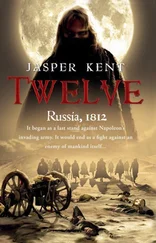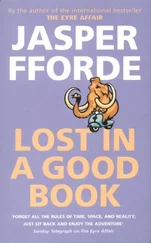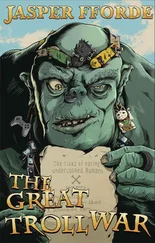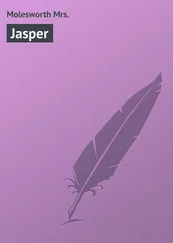Ward - Jasper Lyle
Здесь есть возможность читать онлайн «Ward - Jasper Lyle» — ознакомительный отрывок электронной книги совершенно бесплатно, а после прочтения отрывка купить полную версию. В некоторых случаях можно слушать аудио, скачать через торрент в формате fb2 и присутствует краткое содержание. Жанр: foreign_prose, foreign_antique, на английском языке. Описание произведения, (предисловие) а так же отзывы посетителей доступны на портале библиотеки ЛибКат.
- Название:Jasper Lyle
- Автор:
- Жанр:
- Год:неизвестен
- ISBN:нет данных
- Рейтинг книги:5 / 5. Голосов: 1
-
Избранное:Добавить в избранное
- Отзывы:
-
Ваша оценка:
- 100
- 1
- 2
- 3
- 4
- 5
Jasper Lyle: краткое содержание, описание и аннотация
Предлагаем к чтению аннотацию, описание, краткое содержание или предисловие (зависит от того, что написал сам автор книги «Jasper Lyle»). Если вы не нашли необходимую информацию о книге — напишите в комментариях, мы постараемся отыскать её.
Jasper Lyle — читать онлайн ознакомительный отрывок
Ниже представлен текст книги, разбитый по страницам. Система сохранения места последней прочитанной страницы, позволяет с удобством читать онлайн бесплатно книгу «Jasper Lyle», без необходимости каждый раз заново искать на чём Вы остановились. Поставьте закладку, и сможете в любой момент перейти на страницу, на которой закончили чтение.
Интервал:
Закладка:
Harriet Ward
Jasper Lyle
Chapter One.
The Travellers
Kafirland!
People are beginning now-a-days to know where Kafirland is!
Verily they have paid dearly for their knowledge!
It is a beautiful land, with its open savannahs, its wooded glens, its heathy mountains, its green and undulating parks—nature’s plantations! Pleasant to the eye is the sight of the colonists’ sheltered farms, surrounded by waving cornfields, and backed by noble mountains, ascending in the distance, one above another, assuming every hue it is possible to imagine, and finally blending their purple heights with clouds all radiant with gold, or shaping themselves into canopies of sombre colouring, and veiling the glories of heaven from the upturned gaze of man.
But from these scenes the traveller may suddenly find himself translated to the most sterile moors, stretching out in apparently illimitable space, or bounded by bald rocks, which offer no “shadow from the heat,” no “refuge from the storm.” In these tracts, the earth, resembling lava, is bare of all but stones, except where some bright-flowering bulb has struggled with its destiny, only to waste its beauty on the desert. There is nothing living to be seen in these inhospitable regions, save when the hungry travellers pause to “to kill and eat,” and lo! as the scent of blood rises in the atmosphere, a solitary speck hovers in the sky, another, and another, and, like airy demons waiting for their prey, the asphogels, the gigantic vultures of South Africa, keep watch over the bivouac, in anticipation of the feast for which their instinct has prepared them.
It was in the centre of an unsightly plain that three travellers were arrested on their journey by one of those appalling storms which, in the loveliest spots of Southern Africa, disenchant the mind, impressed with the beauty of the wooded tracts, or the grandeur of even the solitary wastes, with the sweet influence of balmy mornings, or the nights serene and clear, sometimes shining more brilliantly than day.
All the morning symptoms in the air had warned the attendant of our travellers, a knowing little bush man, of an approaching storm, and he had urged his masters to advance with all the speed they could drive into their patient and active steeds. But the lightning soon played in all its horrible brightness, piles of clouds like snow began to rise in front; to the unpractised ear all was silent, but the bushman called a halt, and dismounting, led the others with their horses behind a heap of stones.
Thus partially screened, they awaited the mighty tempest.
The giant of the storm advanced as with a trumpet-blast from that part of the horizon whence the lightning had telegraphed his approach. He came with a rushing sound resembling the passage of an invisible but powerful host, the desert shook with the terror of his presence, the clouds came slowly floating on, growing darker and darker, till their hue was of a leaden aspect, and in a few moments, as with a roar of many waters, the rains poured down their torrents, the winds whistled an unearthly chorus to the plashing of the floods, the great stones rocked and moaned, the thunder pealed, now muttering in ill-subdued wrath, and now clattering overhead in ungovernable fury, then passing by to burst its bolts on some far mountain-top, or on fair pasture-lands, where cattle stood huddled together in terror and dismay. There was silence at length upon the plain. “The earth trembled and was still,” the horses lifted their heads and snuffed up the refreshing air; the little bushman groom, whom I shall describe by-and-by, drew the covers from the saddles, and the two young men, his masters, shook themselves like dogs on reaching land after a long swim.
“Well,” said the younger, a man of slender frame, but not the less manly in his appearance for that, “here is a precious specimen of an African climate!”
“Yes, my good fellow; you are able to judge of it now,” replied his companion, Major Frankfort, whose darkened complexion and tanned gloveless hands proved his experience in the country, and who solaced himself and his friend moderately with a sopie (dram), from the flask stuck in his leather waist-belt, to which other appendages were fixed. Neither did he forget the shivering but smiling bushman, May. The name is not in keeping with this very original little groom, but he had been so named not without reason.
These two travellers, Major Frankfort and Mr Ormsby, were officers of an English regiment employed on the frontier of the British possessions in South Africa, and had obtained leave of absence for the purpose of journeying together on a shooting excursion beyond the Orange River.
The younger one had never seen any sport beyond his father’s moors, and, albeit rather indolent and luxurious of habit, he found himself tempted to accompany Frankfort into the interior of the country, where he was told that droves of large game, of manifold species, were to be seen herding together on the mountain slopes and spacious plains to the north-east.
And now the sun burst forth, the clouds rolled away in heavy masses, the plain stretched wider and wider in the clear expanse, and in the distance the hills loomed large, till at length the peaks and tableland stood out strongly defined against the sky.
The horses were well rubbed down and re-saddled, the travellers resumed their route, and in another hour some signs of vegetation promised comfort and repose.
Clumps of bush adorned either side of the road, the large starry jessamine, the glowing geranium, the golden-blossomed green mimosa, emitting a delightful odour from the bowers formed by nature’s graceful hand, were doubly agreeable to the eye that ached with gazing on a barren space, and ere long the ripple of water sounded musically among the trees; in another moment a clear stream delighted the eyes of men and beasts.
Pleasant it was in that cool drift (ford) to feel the gentle gale fanning the heated brow, pleasant to lift even the light felt hat from the head, and halt beneath the over-arching boughs of willows and trees of statelier growth, in which the monkeys chattered, frightening the poor guanas from their hiding-places among the stones into the sanctuary of the tall grasses and plants, prodigal of beauty in the deep solitude.
They crossed the stream, and after threading a defile thickly studded with euphorbias and prickly-pear bushes, the honey-bird hovering about them and striving to beguile them to those delicious nooks where bees make their nests, and the coneys have colonies in the cliffs, they found themselves upon another plain, dotted like a park with clumps of trees. Here the bushman guide halted, and placing the open palm of his right hand above the left, he measured the space between the sun and the horizon, and, announcing that “it wanted one hour to sunset,” gave his horse the rein, and cantering on at a smarter pace than before, was followed by his masters.
They soon came upon the track of waggon-wheels, next they found the remains of fire and the débris of a meal; at a little distance lay the carcase of a poor ox, which had died probably from exhaustion, and round it were assembled, in greedy conclave, what appeared to Ormsby’s unpractised eye a flock of sheep. It was a company of vultures, seated in a circle round their prey, and while some still ate, the rest, unwilling or unable to move from the scene of the repast, kept close order, and dosingly watched their hungry comrades with a ludicrously stupified air.
Unwilling to disturb these scavengers of nature, the three horsemen moved on, and soon looked down upon a valley, the quiet of which was relieved by a farm-house of regular proportions; but the shingle roof, bare white walls, and ill-tended garden had nothing picturesque about them, although the valley was rich in corn, and a grove of fruit-trees proved the capabilities of the soil; but these were planted without taste or order.
Читать дальшеИнтервал:
Закладка:
Похожие книги на «Jasper Lyle»
Представляем Вашему вниманию похожие книги на «Jasper Lyle» списком для выбора. Мы отобрали схожую по названию и смыслу литературу в надежде предоставить читателям больше вариантов отыскать новые, интересные, ещё непрочитанные произведения.
Обсуждение, отзывы о книге «Jasper Lyle» и просто собственные мнения читателей. Оставьте ваши комментарии, напишите, что Вы думаете о произведении, его смысле или главных героях. Укажите что конкретно понравилось, а что нет, и почему Вы так считаете.












